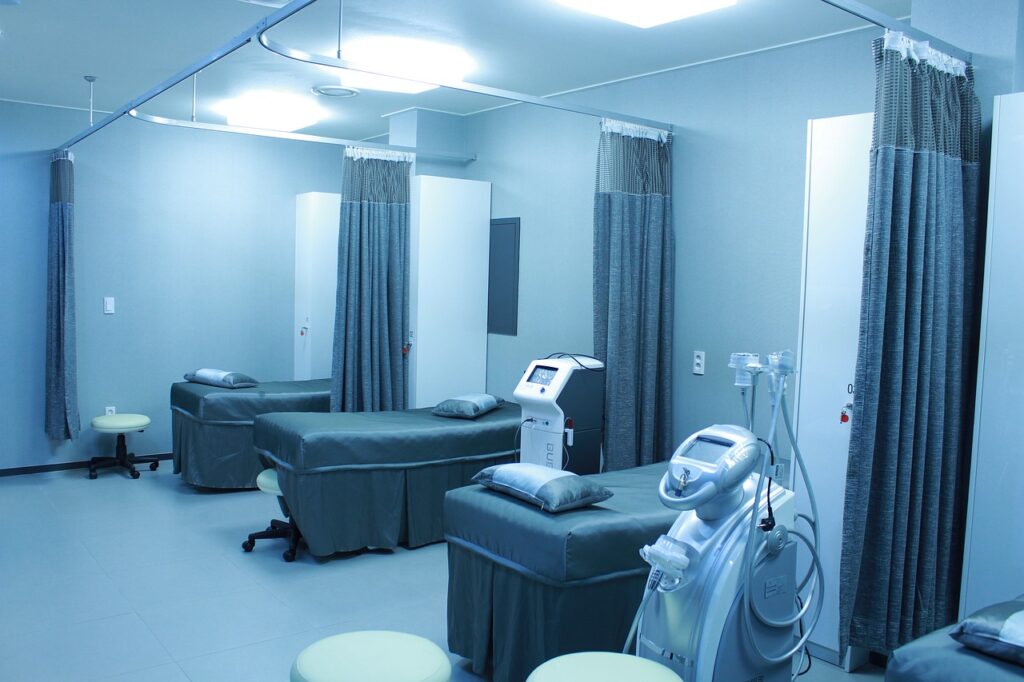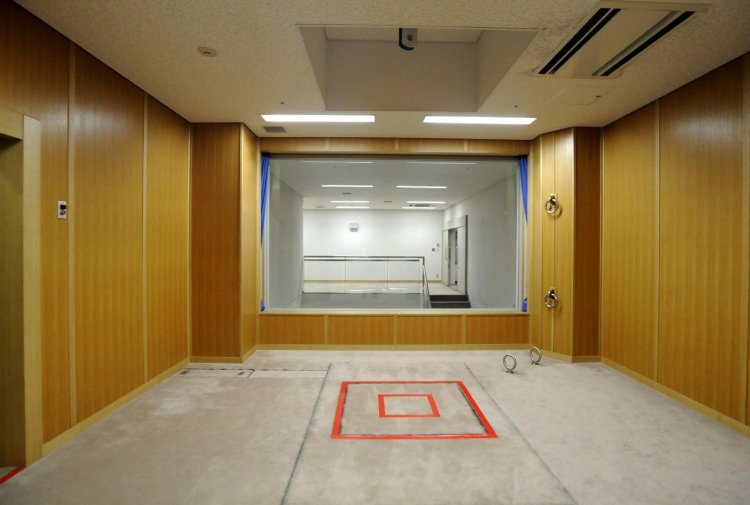
The photo shows the room of a hospital ward with modern machinery. The light in the room is dim and cold. Photo by vitalworks, retrieved by Pixabay, 20 April 2016
China uses fake diagnoses of mental illness to jail protesters in hospitals and subject them to torture and ill-treatment disguised as cures.
Through a series of recent interviews, the BBC has uncovered the truth behind hundreds of “fake” mentally ill patients hospitalised in China. Since 2013, the Chinese government has fabricated fake diagnoses of mental illnesses as an excuse to jail and torture those who protest or complain to the authorities. According to witnesses, those who were diagnosed with a mental illness were sent to the hospital, where they were restrained, beaten, given anti-psychotic drugs, and subjected to electroconvulsive therapy without their consent. According to a Chinese lawyer interviewed by the BBC, China has always used hospitalisation to detain dissenting citizens extrajudicially. However, this practice has become more common in recent years.
To better understand the brutality of this system, at the end of January 2025, Zhang Junjie, who fled China and sought refuge in New Zealand, told his story to the BBC. In 2022, at 17, he had protested against the severe Chinese lockdown policies. After his father, an employee of the local government, was notified of Junjie’s protest, he called the police and had him arrested. Such an arrest was unconventional as Junjie was not brought to a police station but to a hospital disguised as a COVID-19 test centre. After being tied to the hospital bed, Junjie was told that due to his protests against the Chinese ruling party, he had a very serious mental disease.
Junjie endured his forced hospitalisation and was eventually discharged. Nevertheless, just a month after his discharge, he was arrested again with made-up allegations. Once again, he was diagnosed with mental incapacity, and upon his second discharge, he was prescribed anti-psychotic drugs used to cure schizophrenia and bipolar disorder. He also added that the police would come to his house regularly to check if he had taken the pills. Unsure if he could endure this situation for longer and worried about a third hospitalisation, Junjie decided to flee to New Zealand.
A second testimony comes from Chinese activist Jie Lijian, who reported to the BBC how he was hospitalised against his will in 2018. Following a protest in favour of better pay at a factory and an interrogation from the police, Lijian was taken to a psychiatric hospital. During his stay at the hospital, he was drugged and exposed to a treatment involving electric shocks through his brain. After enduring such conditions for 52 days, he was discharged and sought asylum in the US (BBC News, 2025).
A group of Chinese journalists conducted a thorough research of the period between 2013 and 2017, finding out that more than 200 people denounced being wrongfully hospitalised by the authorities. Although their research came to an abrupt end in 2017 because the group founder was arrested, their reports highlighted that the 2013 Mental Health Law of China made it illegal to treat anyone not correctly diagnosed with a mental illness. The law aimed to reduce this kind of abuse, but the lack of checks and balances by Chinese authorities ensured the disrespect for the law.
More recently, during another research investigation, the BBC found that between 2023 and 2024, more than 100 people sued the police, local authorities, and hospitals for the inhumane treatment they were subjected to. So far, only two have won their case, while courts have rejected most of these appeals (The Telegraph, 2025).
The situation in China denotes serious violations of human rights perpetrated by the Chinese government and the police. Although these crimes are widely undocumented and unknown to the rest of the world due to China’s strict control of information, it is clear that things are changing, with a portion of the Chinese population unwilling to accept such abuses any longer.
Sources and Further Readings:
Newey, S. (2025, January 23). China accused of forcing ‘troublemakers’ into psychiatric hospitals for dissenting views. The Telegraph. https://www.telegraph.co.uk/world-news/2025/01/23/china-forcing-troublemakers-to-psychiatric-hospitals/.
Pratten, N. (2025, January 23). I had anti-government views so they treated me for schizophrenia. BBC News. https://www.bbc.com/news/articles/cr46npx1e73o.








Comments